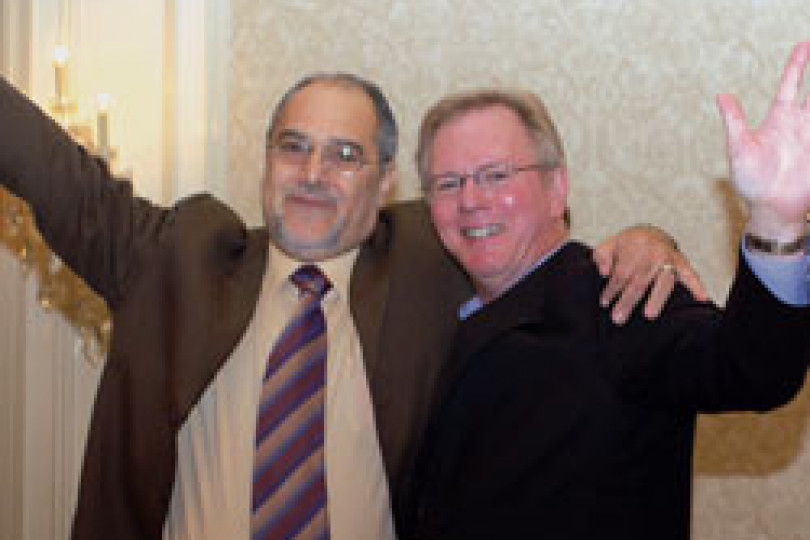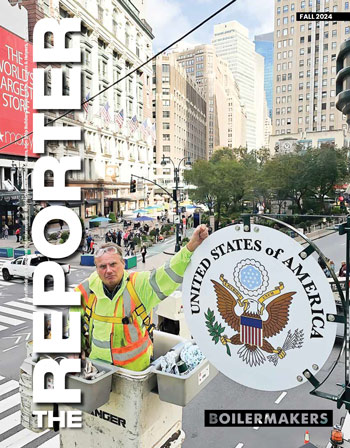Thousands express interest in Alberta oil sands jobs
RICARDO BALDINO, PRESIDENT of the Brazilian labor union, STICC, spoke before the Construction Division conference March 5 about a new initiative to put union welders from his country to work in Alberta, alongside members of Boilermakers Local 146 (Edmonton). Local 146 needs additional workers to help man the immense oil sands projects in the province, along with other construction and maintenance jobs.
Qualified welders are in short supply because of the ramp-up in heavy industrial projects coupled with the retirement of baby boom workers, both in Canada and the United States.
Speaking in Portuguese (Brazil’s national language) through an interpreter, Baldino said, “Six thousand Brazilian welders have already applied. This is a first step toward an international labor movement where labor can truly participate in [the benefits of] a global economy.” Baldino thanked the Boilermakers union and the leadership of Local 146 for spearheading the effort to bring in skilled workers from Brazil.
IP Newton Jones told the conference, “The International is very supportive of this effort.” He added that Local 146 had also reached out to Great Britain, which faces its own skilled labor shortage.
Western Canada IVP Joe Maloney stressed the necessity of such arrangements, stating, “Right now there’s about $90-$100 billion in construction activity going on in heavy industrial areas of Alberta. There are about 4,000 Boilermakers in the local right now, and they’re maxed out work-wise.” Maloney praised Warren Fraleigh and ABM Morgan Fedak for developing and pursuing the concept. “Instead of losing further market share to nonunion competitors, they came up with this idea to reach out to the international community, and they went right to the unions. So it’s union to union. These guys (Fraleigh and Fedak) have done a tremendous job putting this thing together.”
Fraleigh told Baldino, “We look forward to having your members come to Alberta and share in our prosperity. These are times right now — with the manpower supply being what it is — that we have to think outside the box. If we are successful, and we believe we will be, it could possibly form the basis of a best practice for many of the unions in North America, and indeed worldwide.”






